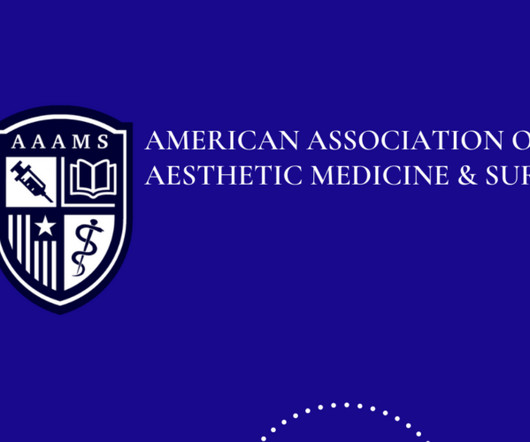How an AAAMS Membership Can Benefit Your Medical Career
AAAMS
DECEMBER 19, 2024
In the rapidly growing field of aesthetic medicine, practitioners worldwide are increasingly seeking advanced training, networking opportunities, and a community dedicated to excellence. The Most Comprehensive Aesthetic Medical Network An AAAMS membership goes beyond individual training sessions.


















Let's personalize your content